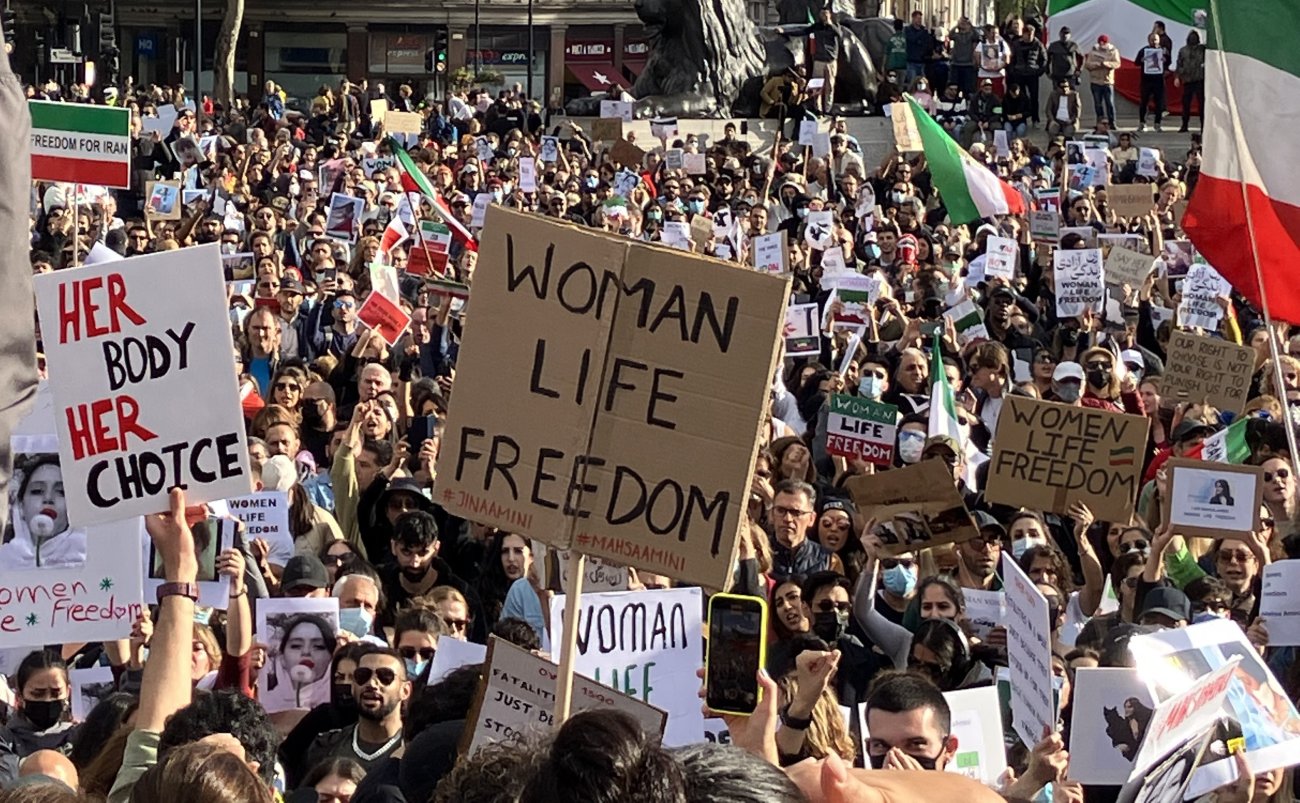Iranian support for secularism has more than doubled since 2015
Posted: Thu, 29th Feb 2024
Iranian support for secularism has more than doubled since 2015
Nearly three quarters of Iranians want a secular government instead of a theocratic dictatorship, a regime-conducted poll has revealed.
Seventy-three per cent of those surveyed expressed support for separating religion and state, compared to 31% in 2015 when the survey was last held.
A similar increase in those actively objecting to mandatory hijab was also recorded, up to 34% from 16% per cent in 2015.
Since the 1979 Islamic Revolution, authorities in Iran have imposed a mandatory dress code requiring all women and girls over the age of 9 to wear a headscarf and loose-fitting clothing that disguises their figures in public.
Less than 8% of respondents said they agree women must be made to wear hijab, less than half the 2015 figure of nearly 19%.
People who said they are not against women who break hijab laws almost quadrupled, increasing from just under 11% to around 38%.
Over 15,800 Iranians of voting age across 31 provinces took part in the anonymous study run by the Ministry of Culture and Islamic Guidance. According to Iran International, the study was confidential but leaked to overseas Persian media outlets.
The polling is consistent with other studies of Iranian public opinion.
In November 2022, a report found similar levels of support for a secular state and opposition to mandatory hijab laws.
The findings suggest a significant shift in attitudes towards Iran's regime following widespread protests prompted by the death of Mahsa Amini at the hands of the regime's 'morality police' in 2022.
The protests were described by commander-in-chief of the Islamic Revolution Guard Corps Hossein Salami as "the most powerful, most dangerous, most serious and far-reaching opposition to the Islamic Republic".
The poll indicated societal attitudes towards religious practices have also changed, with 85% saying Iranians have become less religious compared to 5 years ago. Only 7% said they have become more religious.
Eighty-one per cent anticipate a continued decline in religious observance over the next five years, with just 9% saying the population is likely to be more religious in future.
NSS: 'Survey demonstrates universality of secular principles'
National Secular Society campaigns officer Jack Rivington said: "The strength of support for secularism amongst the Iranian people is heartening, and illustrates the universal appeal of secular ideas.
"It is those living under theocracies who perhaps best understand the importance of secularism. Instead of endorsing initiatives intended to promote regressive aspects of religious ideology like the hijab, democratic societies like the UK should support Iranians in their efforts to challenge theocracy."
What the NSS stands for
The Secular Charter outlines 10 principles that guide us as we campaign for a secular democracy which safeguards all citizens' rights to freedom of and from religion.








